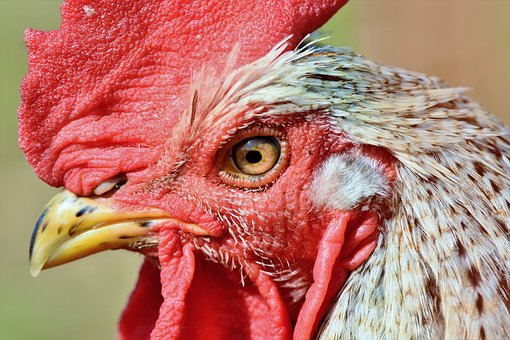Archived Blogs
|
Not long ago, I read about Maurice the Rooster.
He lives in Saint Pierre D’Oleron in France and he’s caused quite the uproar. Vacationers, renting a home near Maurice, were disturbed by his morning vocalizations and wanted it stopped. So they took him to court. Stopping a rooster from crowing is not an easy task to accomplish as it turns out. Researchers in Nagoya University of Japan discovered that roosters don’t need light cues to start making noise. They kept the roosters in dim light and despite the lack of changing brightness—roosters still crowed on 23.8 hour cycles. (Current Biology March 18). Putting Clarice in an unlit shed wouldn’t do the trick. Aside from an understanding of the circadian rhythms of roosters, it brought up the problem of intolerance. Which, by definition is, an unwillingness to accept views, beliefs or behaviors different from your own. Picking the countryside to vacation and being intolerant of the very creatures that define a countryside is a problem to me. It took two years in the courtroom, but Maurice eventually won the right to crow. There’s more to intolerance than I realized. Apparently Intolerance is also 1916 Silent Film directed by DW Griffen and it’s regarded as one of the great masterpieces of that era. It follows four story lines (Babylonian, Judean, Renaissance and Modern) and it demonstrates man’s persistent intolerance through time. A leading film critic of the time, Theodore Huff, called it the only motion picture worthy of standing beside great works of art like Beethoven’s 5th or Michelangelo’s Sistine Chapel. Rotten Tomatoes gave it a 97%. It sounds like something I should check out, but I’m not really fond of silent films. Hmm, does that make me intolerant? Sometimes it feels like there’s no escape from all the drama, unhappiness, and intolerance…but then I read this. In Bhutan, between India and Tibet, they’ve come up with a concept called the “Gross National Happiness Index”. As the article points out: "When we say Gross National Happiness, it is not the celebrative 'Ha ha -- Ho ho' kind of happiness that we look for in life," Lotay explained. "It only means contentment, control of your mind, control of wants in your life. Don't be jealous with others, be happy with what you have, be compassionate, be a society where you can be more than happy to share. In Bhutan, they measure happiness. It sounds a bit crazy right? They do regular surveys that pay attention to health, education, governance, ecology, time use, community vitality, living standards and psychological well-being. And they developed a clear plan to approach what they saw as deficiencies. Is it working? It sounds like it is. They produced a politically and economically stable environment, increased the life expectancy of the their residents, protected wild-life, banned tobacco and plastic bags and increased access to both healthcare and education. That’s certainly something to crow about.
0 Comments
Leave a Reply. |
Archives
October 2020
Categories |
COPYRIGHT 2017 SUSAN BADARACCO | Site Credits


 RSS Feed
RSS Feed